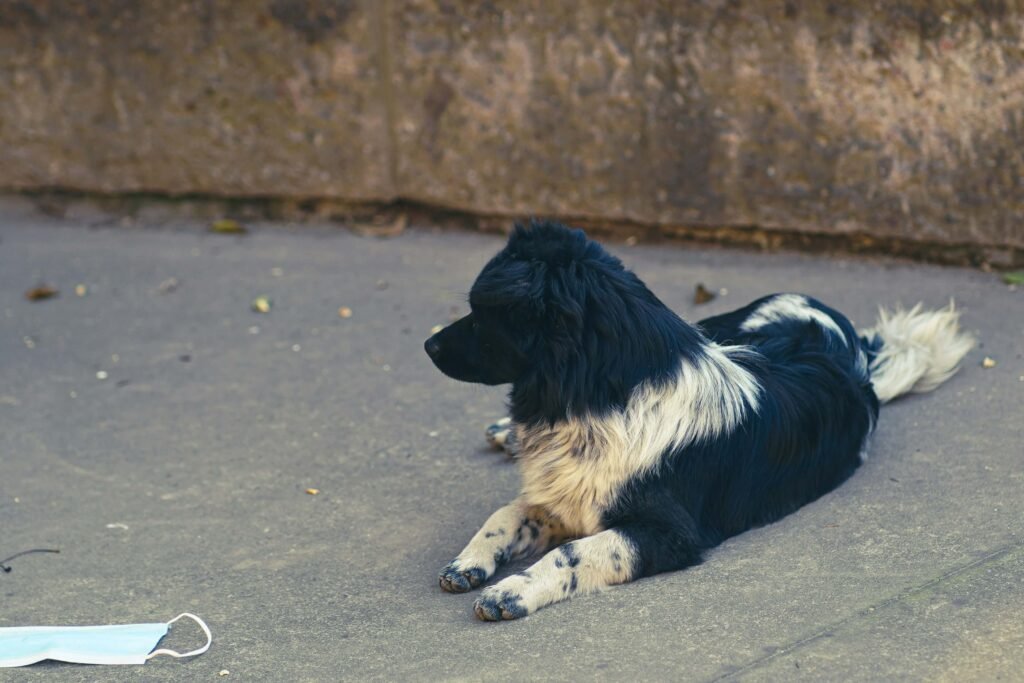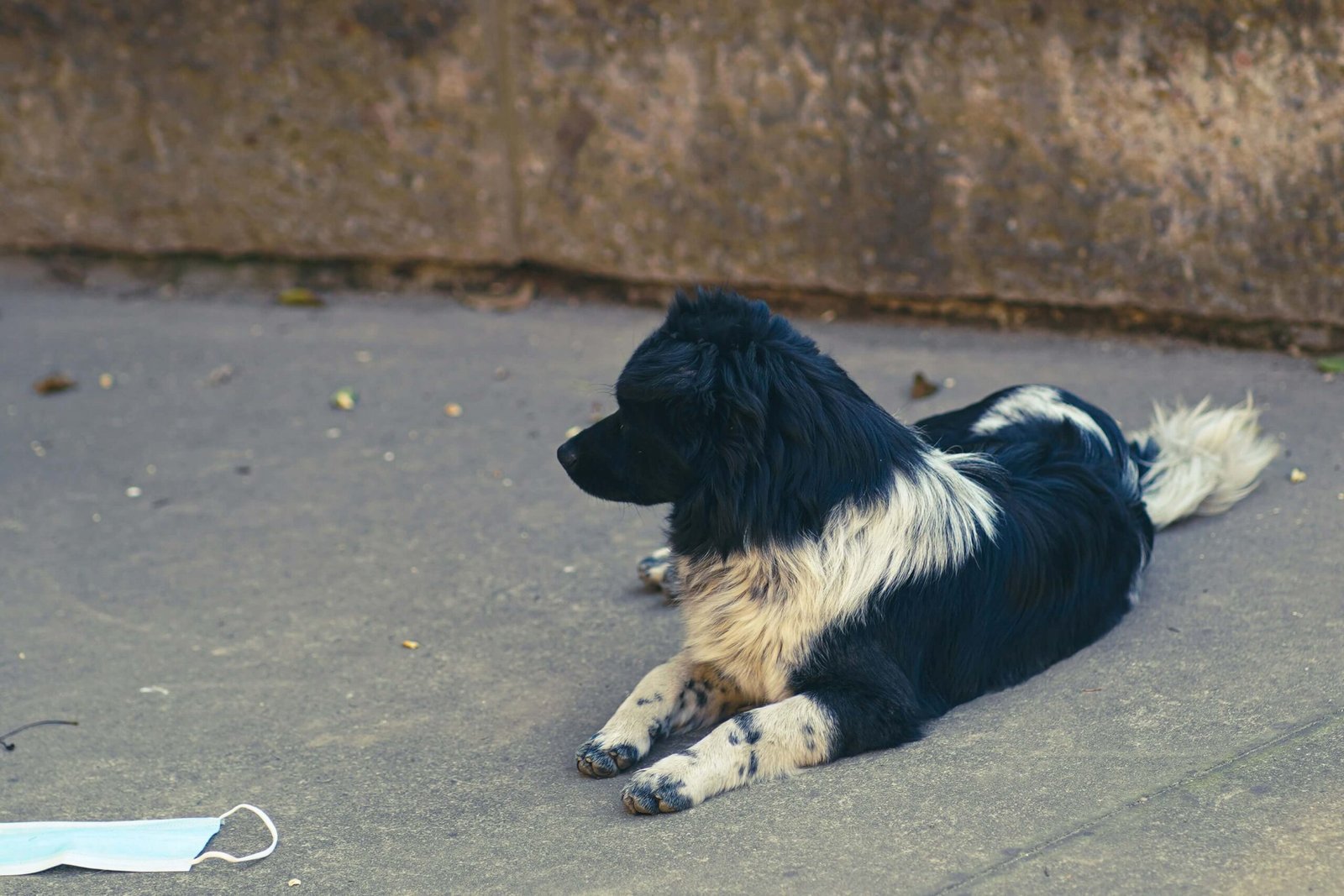Why Does My Dog Lick My Other Dogs Mouth? Unpacking This Curious Behavior
Have you ever caught your dog engaging in the peculiar habit of licking another dog’s mouth and wondered what on earth is going on? This behavior, while seemingly strange to us humans, is actually quite common among our canine companions. Dogs communicate and interact in ways that are often misunderstood, and mouth-licking is one such behavior that has deep roots in their instincts and social dynamics. Whether you’re a first-time dog owner or a seasoned pet parent, understanding why this happens can deepen your bond with your furry friends and provide insight into their world. Let’s dive into the fascinating reasons behind this behavior.
The Social Dynamics Behind Mouth-Licking
Dogs are highly social animals, and their interactions often revolve around establishing bonds, hierarchies, and trust. Mouth-licking is one way they communicate with each other. Here’s a breakdown of the possible social reasons behind this behavior:
Affection and Bonding
Licking another dog’s mouth can be a sign of affection, similar to how dogs might lick their human companions. It’s their way of showing love and strengthening their connection.Submission and Respect
In some cases, a dog may lick another dog’s mouth as a gesture of submission. This is especially common in multi-dog households where there is a clear hierarchy.Curiosity About Food
Dogs have an incredible sense of smell, and if one dog has recently eaten, the other might lick its mouth to investigate any lingering food scents.Comfort and Reassurance
Just like humans seek comfort in stressful situations, dogs may lick each other’s mouths to provide reassurance or calmness during tense moments.Playful Interaction
Sometimes, mouth-licking is simply part of playful behavior, especially between dogs that share a close bond.
Understanding these nuances can help you interpret your dogs’ interactions more accurately. While it may seem odd at first glance, this behavior is usually harmless and rooted in their natural instincts.
Possible Health-Related Reasons for Mouth-Licking
While most instances of mouth-licking are purely behavioral, there are times when it could indicate an underlying health issue. If you notice excessive licking or changes in your dog’s behavior, it’s worth considering these potential causes:
Nutritional Deficiencies
A dog might lick another dog’s mouth if it senses a deficiency in its own diet. This could be linked to cravings for certain nutrients.Stress or Anxiety
Dogs often exhibit repetitive behaviors like licking when they feel anxious or stressed. Observing other signs of distress can help confirm this.Oral Health Issues
If one dog has dental problems, such as gum inflammation or bad breath, the other dog might react by licking its mouth excessively.Parasites or Skin Conditions
Fleas, ticks, or skin irritations can sometimes lead to increased licking behaviors, including licking another dog’s mouth area.Medical Conditions
Certain medical conditions, such as gastrointestinal upset or hormonal imbalances, might also trigger unusual licking patterns.
If you suspect that your dog’s licking behavior is linked to a health concern, consulting a veterinarian is always the best course of action. Early intervention can prevent minor issues from escalating into more serious problems.
Check this guide 👉Why Is My Dog Puking Foam? Best 7 Health Tips!
Check this guide 👉Why Is My Dogs Mouth Open But Not Panting? Best 7 Tips!
Check this guide 👉Why Does My Dog Stretch So Much? Best 7 Behavior Tips!

Reasons for Mouth-Licking | What You Can Do |
|---|---|
Affection and bonding | Encourage positive interactions through play and treats. |
Submission and respect | Observe and respect the established hierarchy in your home. |
Curiosity about food | Ensure both dogs have equal access to meals and snacks. |
Stress or anxiety | Provide calming activities like walks or puzzle toys. |
Playful interaction | Engage them in interactive games to channel their energy. |
How to Respond to Mouth-Licking Behavior
Knowing how to respond to your dog’s mouth-licking behavior depends on the context and frequency of the action. Here are some steps you can take to address this behavior effectively:
Observe Before Intervening
Watch your dogs closely to determine whether the licking is part of normal social interaction or something more concerning.Redirect Attention
If the behavior seems obsessive or disruptive, try redirecting their focus to a toy or activity that engages both dogs equally.Reinforce Positive Behaviors
Reward your dogs with praise or treats when they engage in calm, friendly interactions instead of excessive licking.Create a Balanced Environment
Ensure that all dogs in your household feel secure and valued. Unequal attention can sometimes trigger competitive behaviors.Consult a Professional
If you’re unsure about the cause or impact of the licking, seek advice from a professional trainer or veterinarian.
By taking these proactive steps, you can ensure that your dogs maintain a harmonious relationship while addressing any potential concerns.
Preventing Excessive Mouth-Licking
In some cases, excessive mouth-licking can become problematic, either due to hygiene concerns or behavioral issues. Here’s how you can prevent it from escalating:
Maintain Good Oral Hygiene
Regularly brushing your dogs’ teeth can reduce the likelihood of unpleasant odors that might attract licking.Provide Mental Stimulation
Boredom can lead to compulsive behaviors. Puzzle toys and interactive games can keep your dogs mentally engaged.Monitor Diet and Nutrition
Ensure both dogs are receiving a balanced diet to avoid nutrient deficiencies that might trigger unusual behaviors.Separate During Meal Times
Feeding your dogs separately can minimize food-related licking and reduce competition.Address Behavioral Triggers
Identify and eliminate stressors in your dogs’ environment to promote calmer interactions.
With consistent effort and attention, you can curb excessive licking and foster a peaceful atmosphere for your pets.
The Role of Scent in Mouth-Licking Behavior
Dogs rely heavily on their sense of smell to interpret the world around them, and mouth-licking can often be linked to scent exploration. This behavior allows them to gather information about their environment or the other dog. Here are some insights into how scent plays a role:
Detecting Food Residue
If one dog has recently eaten, the lingering scent of food around its mouth may attract the other dog to investigate through licking.Identifying Emotional States
Dogs can detect pheromones and other chemical signals in saliva, which may reveal the emotional state of the other dog.Recognizing Familiarity
Licking another dog’s mouth might help reinforce recognition, especially if they’ve been apart for a while.Exploring Health Cues
Certain health conditions can alter the scent of saliva, prompting the other dog to pay closer attention.Curiosity About New Experiences
If one dog has encountered something new or exciting, the other may lick its mouth to “share” in that experience.
Understanding the role of scent highlights just how intricate and intentional this behavior can be. It’s a reminder of how deeply connected dogs are to their senses and their pack members.
How Age Influences Mouth-Licking Behavior
The age of your dogs can significantly influence why one might lick the other’s mouth. Puppies, adults, and senior dogs all exhibit variations of this behavior based on their developmental stages and needs. Consider these factors:
Puppy Exploration
Puppies often lick older dogs’ mouths as a way to solicit food or comfort, mimicking behaviors they would display with their mother.Adolescent Playfulness
Younger dogs may engage in mouth-licking during play as a way to bond and establish social connections.Adult Dog Leadership
Adult dogs may use mouth-licking to assert dominance or reassure younger dogs within the household hierarchy.Senior Dog Comfort
Older dogs might lick the mouths of younger, more energetic dogs as a way to calm them down or seek companionship.Age Gap Dynamics
Significant age differences between dogs can lead to unique interactions, with the younger dog often initiating licking behavior.
The interplay of age-related factors adds another layer of complexity to this behavior, showcasing how adaptable and intuitive dogs are throughout their lives.
Cultural and Breed-Specific Influences on Mouth-Licking
While mouth-licking is a universal behavior among dogs, certain breeds or cultural backgrounds may influence its frequency or context. These differences can provide further clarity into your dog’s actions. Take a look at these considerations:
Herding Breeds and Social Structure
Herding breeds like Border Collies or Australian Shepherds may use mouth-licking as part of their instinctual communication methods.Guardian Breeds and Affection
Guardian breeds such as Mastiffs or Great Danes might lick another dog’s mouth as a sign of loyalty and protection.Hunting Breeds and Curiosity
Hunting breeds like Beagles or Retrievers may be more inclined to investigate scents through licking due to their heightened olfactory senses.Toy Breeds and Submission
Smaller toy breeds like Chihuahuas or Pomeranians may lick larger dogs’ mouths as a gesture of deference or respect.Regional Training Practices
Cultural differences in training and socialization can shape how dogs interact, including the prevalence of mouth-licking behaviors.
These breed-specific and cultural nuances demonstrate the diversity of canine behavior and highlight the importance of understanding your dog’s unique background. By doing so, you can better appreciate the subtleties of their interactions.
FAQ
Is it normal for my dog to lick another dog’s mouth?
Yes, it’s completely normal and often stems from social bonding, curiosity, or submission.
Should I stop my dog from licking another dog’s mouth?
Only if the behavior becomes excessive or problematic. Otherwise, it’s generally harmless.
Can mouth-licking indicate a health issue?
In rare cases, yes. Persistent or unusual licking could signal nutritional deficiencies, stress, or oral health problems.
How can I tell if the licking is playful or aggressive?
Look for accompanying body language. Playful licking is accompanied by relaxed postures, while aggression includes stiff movements and growling.
What should I do if the licking bothers one of my dogs?
Separate the dogs temporarily and observe their interactions. Gradually reintroduce them under supervision to ensure harmony.
Understanding and Embracing Your Dog’s Natural Behaviors
Mouth-licking between dogs is just one example of the many fascinating ways our furry friends communicate and interact. By understanding the motivations behind this behavior—whether social, instinctual, or health-related—you can better support your dogs’ emotional and physical well-being. Remember, every dog is unique, and observing their individual personalities will guide you in fostering a loving, balanced environment. So the next time you catch your dog licking another dog’s mouth, take a moment to appreciate the complexity and beauty of their canine world.
Pemphigus Erythematosus in Cats: Best 7 Expert Tips! – Learn to recognize symptoms, manage flare-ups, and improve your cat’s quality of life.
Pemphigus Erythematosus in Dogs: Best 7 Expert Tips! – Discover causes, symptoms, and treatment options to manage this autoimmune skin condition effectively.
Cat Tympanic Membrane: Best 7 Expert Tips! – Learn how to protect your cat’s eardrum, spot issues early, and ensure lifelong auditory health.
Dog Tympanic Membrane: Best 7 Expert Tips! – Learn how to protect your dog’s eardrum, spot issues early, and ensure lifelong ear health with expert advice.





